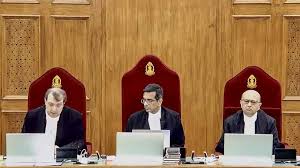In the course of the RG Kar Medical College rape-murder case inquiry, the Supreme Court requested a vital document that was missing and connected to the victim’s postmortem. This document has been identified as a one-page application submitted by a sub-inspector (SI) of Tala Police on August 9. It was included in the case diary of the Kolkata Police that was turned over to the CBI on August 13. The application, which asked for a magisterial postmortem and inquest examination under videography with a board of doctors present, was sent to the head of the forensic medicine department at RG Kar Hospital. The Supreme Court’s concerns are not entirely addressed in this text, nevertheless.
PRB Form No. 54 (Vide Rule 282, WB Form No. 5371), a particular challan used for submitting a dead body for examination, is the subject of the Supreme Court’s main investigation. Important information such the victim’s clothing, cause of death, and damage marks are provided on this form, which is utilized by the Bengal Police. Chief Justice DY Chandrachud stressed the importance of the contested document, noting that it documents the victim’s attire as well as other pertinent information on the state of the body at the time of its transfer for a postmortem examination. There are questions regarding the inquiry because such a document is missing.
Despite following West Bengal’s usual procedure for medico-legal autopsies, the requisition provided by Tala Police on August 9 lacked the portion needed by the Supreme Court that would have detailed the victim’s attire and injuries. At the next court hearing on September 17, the state government is required to present the appropriate form.
The court also questioned the postmortem’s timeliness in addition to the missing form. Bengali standard operating procedures (SOPs) state that postmortem exams cannot be carried out after dusk unless the principal of the medical college and top police authorities both approve of them. Notwithstanding this regulation, with the required approvals in place, exceptions are granted in situations when there is a backlog of medico-legal examinations.
The fact that the Supreme Court focused on these procedural minutiae emphasizes how crucial it is to strictly adhere to investigative norms in instances this delicate. In order to address the court’s concerns and guarantee transparency in the probe, the Bengal government’s compliance in supplying the necessary papers would be crucial.
SOURCE :
TIMES OF INDIA








